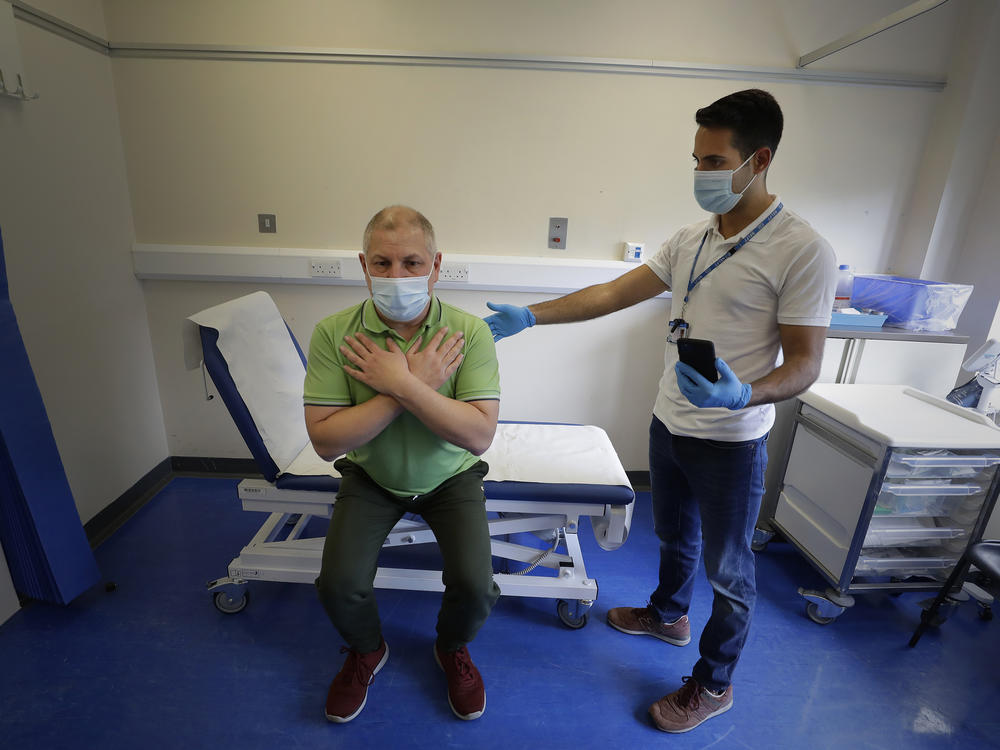Section Branding
Header Content
New Study Finds More Than A Third Of COVID-19 Patients Have Symptoms Months Later
Primary Content
Symptoms of COVID-19 persist or recur months after diagnosis for more than a third of all people who get the illness, a new study finds, potentially pushing the number of so-called long COVID cases higher than previously thought.
In the study published Tuesday in the journal PLOS Medicine, researchers found that about 36% of those studied still reported COVID-like symptoms three and six months after diagnosis. Most previous studies have estimated lingering post-COVID symptoms in 10% to 30% of patients.
The study, led by University of Oxford scientists in the United Kingdom, searched anonymized data from millions of electronic health records, primarily in the United States, to identify a study group of 273,618 patients with COVID-19 and 114,449 patients with influenza as a control.
Some patients had symptoms months after having none at all
Although long COVID is poorly defined, the researchers looked at such symptoms as chest/throat pain, abnormal breathing, abdominal symptoms, fatigue, depression, headaches, cognitive dysfunction and muscle pain.
"The research found that over 1 in 3 patients had one or more features of long-COVID recorded between 3 and 6 months after a diagnosis of COVID-19," the authors concluded.
The researchers also found that of those who had long COVID three to six months after diagnosis, roughly 40% had no record of such symptoms in the prior three months.
Long-haul symptoms for COVID seem to be hitting more often than they do for the flu
Months after the pandemic began, scientists, including Dr. Anthony Fauci, the nation's top infectious disease expert, warned about a post-viral syndrome that was showing up in people who had recovered from COVID. That led some to compare the symptoms experienced by many following COVID-19 to the same experience that some people have after other viral infections, such as the flu.
But the new study concludes that the chances of getting COVID-19 symptoms months after the acute stage of the illness was more than twice as high as for influenza.
The Oxford-led team also found that people who had more severe COVID-19 illness were more likely to get long COVID. Likewise, female and young adult patients also had an elevated risk for the long-term symptoms, but the authors of the study found no difference between white and nonwhite patients.
Copyright 2021 NPR. To see more, visit https://www.npr.org.

